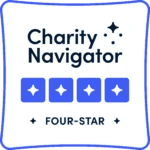Embracing Psychological Flexibility: A New Approach to Healing and Justice
As we recognize Mental Health Awareness Month, I am compelled to share reflections that stem from both my personal experiences in the field and recent enlightening studies, such as the one exploring “The Role of Psychological Flexibility in the Relationship Between Adverse Childhood Experiences (ACEs) and Coercive Family Processes for Justice-Involved Individuals.”
This groundbreaking study, to my knowledge, is the first of its kind to connect psychological flexibility with the challenges faced by individuals within the justice system who have experienced significant childhood adversity. It sheds light on the crucial role of trauma-informed care, not just as a therapeutic approach but as a necessary paradigm shift in how we address the root causes of behavioral issues and violence in our society.
For those of us working with vulnerable populations, particularly at Ho’ola Nā Pua and Pearl Haven, the findings reinforce what we see every day: that adverse childhood experiences create ripples that can lead to tumultuous family dynamics and entanglements with the criminal justice system. This research underscores the urgent need for systems that not only recognize the trauma behind the behavior but actively incorporate strategies to foster psychological resilience and flexibility.
The Power of Psychological Flexibility
Psychological flexibility, or the ability to adapt to situations with openness, awareness, and focus, and to behave in ways consistent with one’s values, is particularly poignant for justice-involved individuals. These individuals often face a world that views them through a lens of judgment and pathology, not through understanding or compassion. By fostering psychological flexibility, we offer a path to healing that recognizes their humanity and potential for change.
At Ho’ola Nā Pua and Pearl Haven, we are dedicated to transforming the way society responds to children and young adults who have endured sexual exploitation and abuse. Integrating the concept of psychological flexibility into our treatment programs, we strive to empower our youth not only to heal but also to thrive despite their past traumas. Our approach focuses on building resilience and adaptability, essential skills for overcoming adversity and forging a positive path forward.
A Call to Empathy and Action
This Mental Health Awareness Month, let’s challenge ourselves to think differently about how we address mental health, especially for those caught in the cycle of trauma and coercion. Let’s advocate for systems that are not only aware of the trauma but are equipped to actively transform pain into empowerment.
The study serves as a reminder of the pressing need to expand trauma-informed practices across all sectors that interact with at-risk populations, including the criminal justice system. By doing so, we can reduce the likelihood of re-offending and interrupt the cycle of violence, creating more opportunities for rehabilitation and meaningful societal contribution.
We owe it to every individual, like those in the justice system who still carry the heavy burden of their childhood experiences, to provide interventions that address their psychological needs and enhance their ability to navigate life’s challenges. It is not enough to be aware; we must be active in our pursuit of solutions that foster long-term healing.
The Path Forward
As we move forward, let us embrace the lessons of this study and integrate psychological flexibility into our frameworks of care. Let’s continue to push the boundaries of what it means to support mental health, ensuring that every individual, no matter their past, has the opportunity to live a life defined not by their hardships but by their resilience and strengths.
In unity and hope,
Jessica Munoz
Founder, Ho’ola Nā Pua/Pearl Haven
Zarling, A., Berta, M., & Van, B. (2023). The role of psychological flexibility in the relationship between ACEs and coercive family processes for Justice-Involved individuals. Journal of Family Trauma, Child Custody & Child Development, 20(4), 545–567. https://doi.org/10.1080/26904586.2023.2232810


